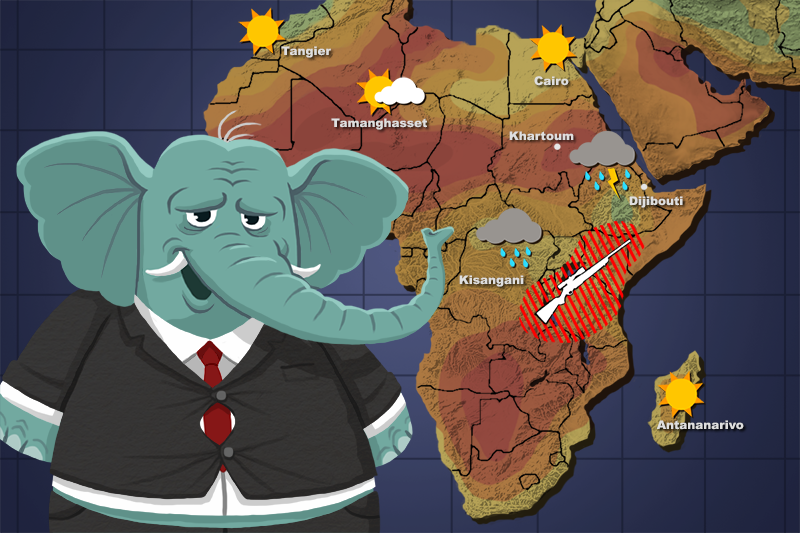Elephants can predict rainstorms days in advance, GPS data suggest

Illustration: Division of Research
They say elephants never forget – and evidently they can vividly remember the sound of rain, so much so that they can tell when a storm is approaching even if it’s 150 miles away, and their ability to do so might one day save them from being killed by the thousands by poachers, according to research that includes a Texas A&M University professor.
Oliver Frauenfeld, assistant professor in the Department of Geography, and colleagues from the University of Virginia, Australia’s University of New South Wales and the University of Utah, have had their work published in the scientific journal PLOS One.
The team analyzed data from GPS tracking devices placed on elephants in 14 different herds in the Namibia region of Africa and the elephants’ movements were plotted for seven years. The region has a distinct rainy season and conditions are usually hot and dry with little precipitation.
The researchers found that elephants can “sense” thunderstorms — often hundreds of miles from their current location – and seem to predict approaching rain several days before it occurs.
“The onset of the rainy season there is very abrupt and lasts just a few weeks, and the rest of the time, there is little or no rain at all,” Frauenfeld explains.
“With the GPS device attached to them, we learned that the elephants can detect thunderstorms at great distances. We don’t know if they can actually hear the thunder or if they are detecting other low-frequency sounds generated by the storms that humans can’t hear. But there is no doubt they know what direction the rain is.”
Frauenfeld says the information could have conservation implications for helping elephants survive the rampant poaching trade in Africa by allowing wildlife officials better prediction of the location and movement of elephant herds.
A recent study by National Geographic estimates that at least 100,000 elephants were killed during a three-year period from 2010-2012, and Central Africa has lost 64 percent of the elephant population in the last decade. Some localized populations could be wiped out entirely within the next 10 years, the study says.
“While the environmental trigger that causes their movements remains uncertain, rain-system generated infrasound, which can travel great distances and be detected by elephants, is a possible trigger for changes in their migration patterns,” Frauenfeld adds.
“Our study suggests that the elephants are responding to a common environmental signal. The change in their movements occurs well before – from days to weeks – of any rain in the elephants’ current location.”
#TAMUresearch

